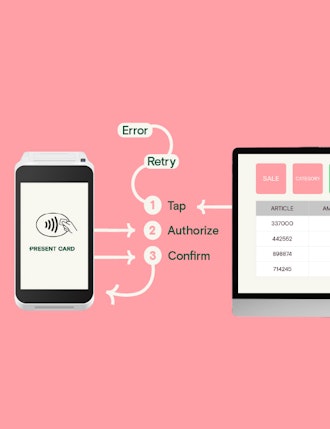The financial services industry is undergoing a significant transformation with the introduction of cloud technology, which is delivering a host of benefits including cost efficiencies, enhanced security, global trading capabilities, bursting capabilities, agility, and innovation. The cloud is also critical to blockchain implementation in payments.
Moreover, in-person payment orchestration and cloud technology have a common objective of offering greater flexibility and efficiency in payment processing. This objective is achieved by utilizing cloud-based technology in in-person payments, which enables stakeholders to separate the payment terminal from the back-end processing.
This separation leads to streamlined operations, improved processing stability, cost savings, quicker time to market, and better business insights. This creates superior solutions for merchants and their customers, and all stakeholders in the payments value chain, including traditional acquirers, PSPs, Payfacs, and internet service providers, benefit from these advancements.
5 Ways cloud technology is driving change
1. Cost efficiencies: Managed cloud eliminates the need for expensive hardware and infrastructure. This frees up resources and facilitates scalability and flexibility in resource management, allowing FS companies to reduce their IT costs and focus on their primary operations without sacrificing quality or efficiency.
2. Enhanced security: Hosting on private cloud offers enhanced protection of sensitive data, advanced encryption, multi-factor authentication and regular security audits, all of which may be more rigorous than on-site solutions. Private cloud environments are tailored to the specific user’s needs, granting them greater control over their security, making it an ideal way for businesses to maintain optimum assurance.
3. Trading local but global: Global cloud providers offer low-latency solutions for businesses needing instant data access, optimised performance and quick loading times. This is particularly important for financial trading companies that rely on high-speed connectivity, and with the help of global cloud providers, businesses have an effective way to ensure optimal access to their stored data, from anywhere at any time.
4. Bursting capability: Bursting capabilities lets companies spin up servers whenever computing demands spike past peak capacity and reduce them again when the rate of data decreases. It’s a convenient and cost-effective way of supporting workloads with varying demand patterns and seasonal/situational demand spikes.
5. Agility and innovation: The cloud provides the scalability, flexibility and speed needed to develop new applications and services or react swiftly to changes. It offers agility and innovation to the ever-evolving FS sector.
In conclusion, the cloud is rapidly transforming the financial services industry by providing cost efficiencies, enhanced security, global connectivity, bursting capabilities, agility, and innovation. Businesses should consider moving away from on-premises data storage and into the cloud to gain the benefits of e.g. blockchain implementation, which offers improved security, redundancy, and low latency. (read our blog post on “the potential of cryptocurrency as a mainstream payment method”)
By embracing cloud technology and in-person payment orchestration, the financial industry can continue to innovate and provide better solutions for merchants, customers, and all providers of the payments value chain.
Find out more on this topic, read our article with Business Reporter.
Interested in reading more around this subject? Here are some useful articles…













